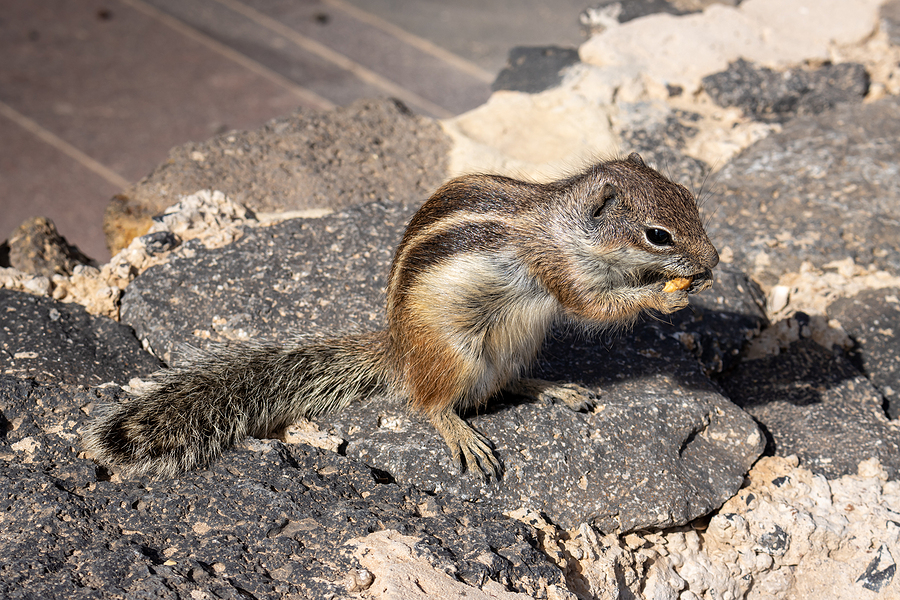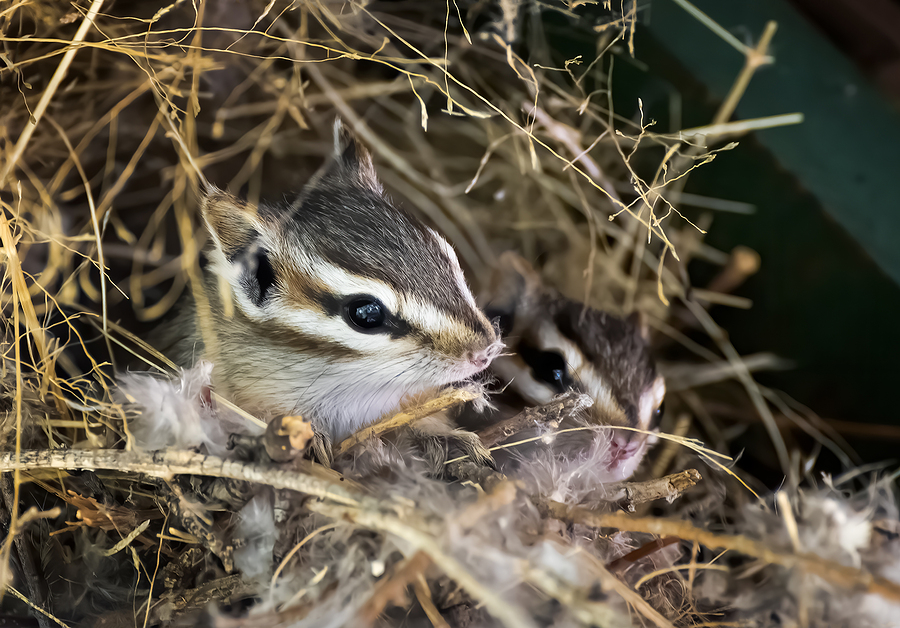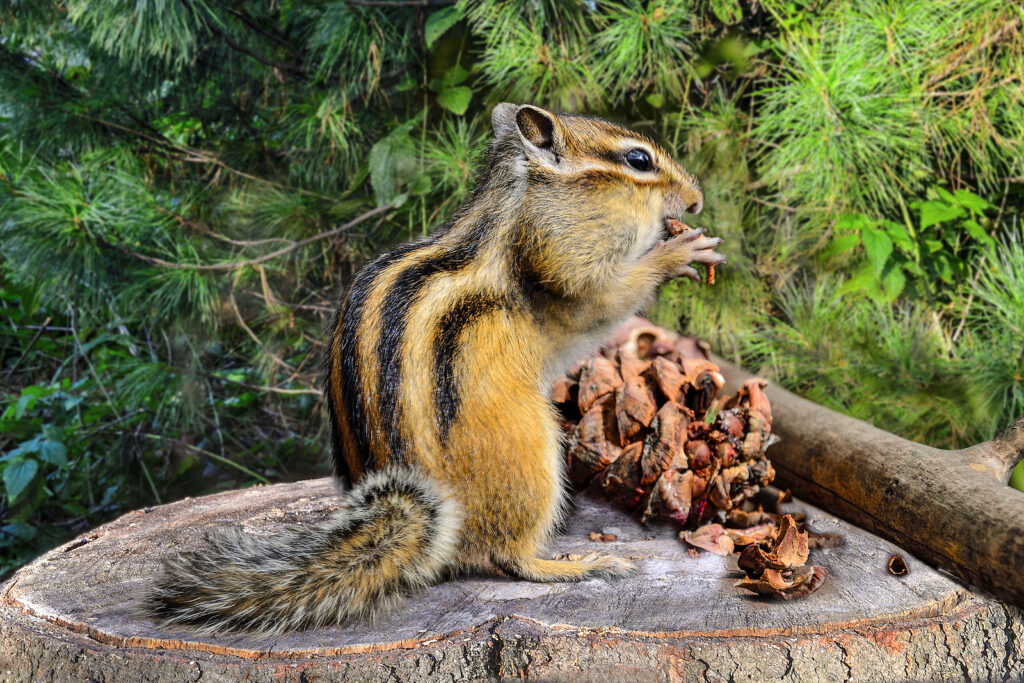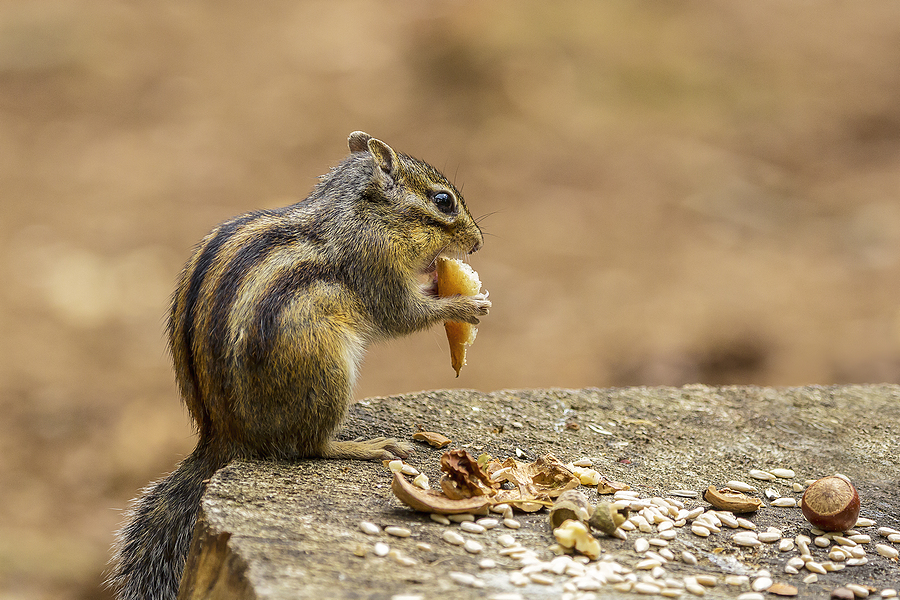Chipmunks, with their cheeky antics and striped backs, might appear as charming woodland creatures straight out of a storybook. However, for homeowners, gardeners, business owners, and landlords, these small rodents can be less than enchanting guests. Chipmunk infestations can lead to significant property damage, impact landscaping efforts and, in some cases, evoke distress.
Understanding how to identify chipmunk-related issues and effectively address them is crucial in maintaining a harmonious outdoor environment. In this blog post, we aim to provide a comprehensive guide to recognizing and responding to chipmunk infestations. Let’s dive in!
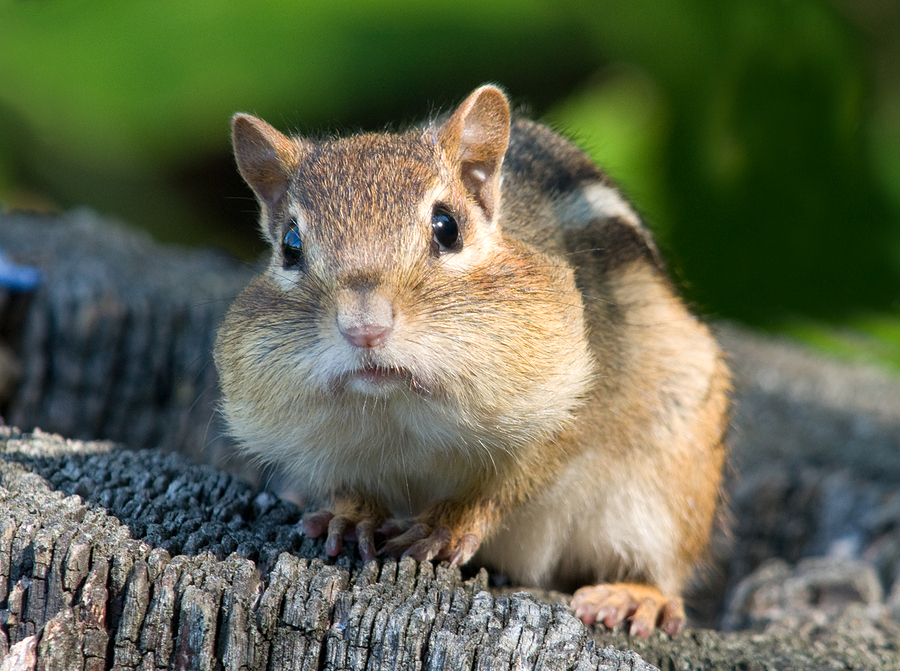
Identifying Chipmunks
Chipmunks, like squirrels, belong to the family Sciuridae. These small rodents typically measure between 3-6 inches in length and have distinct black and white stripes on their backs. Their fur can range from reddish-brown to grayish-brown, and they have small, rounded ears. They are most active during the day and can often be seen darting around in search of food.
One of the key characteristics that differentiate chipmunks from other rodents is their cheeks. Chipmunks have pouches on each side of their mouth that extend down to their shoulders. These pouches allow them to store large quantities of food, which they can then carry back to their burrows.
The Behavior and Habits of Chipmunks
Let’s scurry into the world of chipmunks. These burrowing rodents are known for their love of garden seeds, fruits, and bulbs. They create extensive underground networks of tunnels for shelter and storage which can undermine patios, stairs, retaining walls, and foundations.
While chipmunks typically prefer the cover of wooded areas or brush piles, their search for food and secure nesting sites can lead them into close quarters with human residents. Their agility and small size enable them to exploit the smallest of entry points into yards and occasionally, structures.
Signs of a Chipmunk Infestation
Recognizing the early signs of a chipmunk infestation can save a lot of trouble down the line. Here’s what to be on the lookout for:
Burrows: Look for small openings and burrow tracks in your garden or near your property’s foundation.
Plant Damage: Your beloved flowers and vegetables might become a chipmunk’s feast overnight.
Footprints: Tiny paw prints along patios, garden beds, or even muddy areas can be telltale signs.
Noise: A distinctive, high-pitched chirping noise often accompanies a chipmunk presence.
Chipmunk Repellent and Animal Proofing Methods
Preventing chipmunks from considering your property an ideal habitat is your first line of defense. Here are some chipmunk deterrent tactics to start with:
Seal Entry Points: Ensure that holes, cracks, and openings around the foundation, decks, or porches are sealed.
Natural Repellents: Spices like cayenne pepper, or store-bought natural animal repellents, can dissuade chipmunks from foraging in your garden.
Landscaping Choices: Opt for plants that are less attractive to chipmunks or use mesh hardware cloth to protect seedlings and bulbs.
Safe Chipmunk Removal Strategies
When dealing with nuisance chipmunks, it is required to hire a professional wildlife control company for safe and humane chipmunk removal services. They have the proper licensing, training, and expertise to get rid of chipmunks in the attic, house, chimney, or outside and around your property. There are state and local laws that restrict civilians from performing live animal trapping, extermination, or relocation. Professionals will incorporate a combination of wildlife removal methods to remove chipmunks, such as:
Live Trapping: Using baited, humane traps can be effective. Just be sure to check with local regulations about lawful trapping and relocation.
Exclusion: Creating physical barriers to prevent chipmunks from entering gardens or houses can be a long-term solution.
Professional Critter Control Options
There are instances where a chipmunk problem can become too severe for DIY methods. When significant damage is at stake, or if infestations recur despite preventive measures, calling a professional wildlife removal service for chipmunk control and extraction is wise. Professionals can provide a thorough inspection, identify the extent of the problem, and implement strategies not only to remove the existing population but also to prevent future incursions.
Wrapping Up
Identifying and managing chipmunk infestations is essential in protecting your property and preserving your peace of mind. Being proactive with prevention techniques, employing humane removal strategies, and knowing when to call in expert help are key in addressing the chipmunk conundrum. Don’t let these tiny critters undermine your hard work; take charge and assert control. Remember, a harmonious outdoor space is well within reach, even with wildlife as neighbors. It just requires awareness, action, and sometimes a little professional backup for those particularly pesky chipmunk problems.
Are you dealing with a chipmunk problem on your property? Perhaps you have an infestation in your house or business? Contact Modern Wildlife Control at 317-847-6409 for licensed and insured animal trapping and removal for chipmunks in Indianapolis, Indiana. We serve residential and commercial clients.
Related Posts:
How to Get Rid of Chipmunks Around the Yard
7 Simple Ways to Keep Chipmunks Away From Your Home
How to Locate a Chipmunk Infestation

